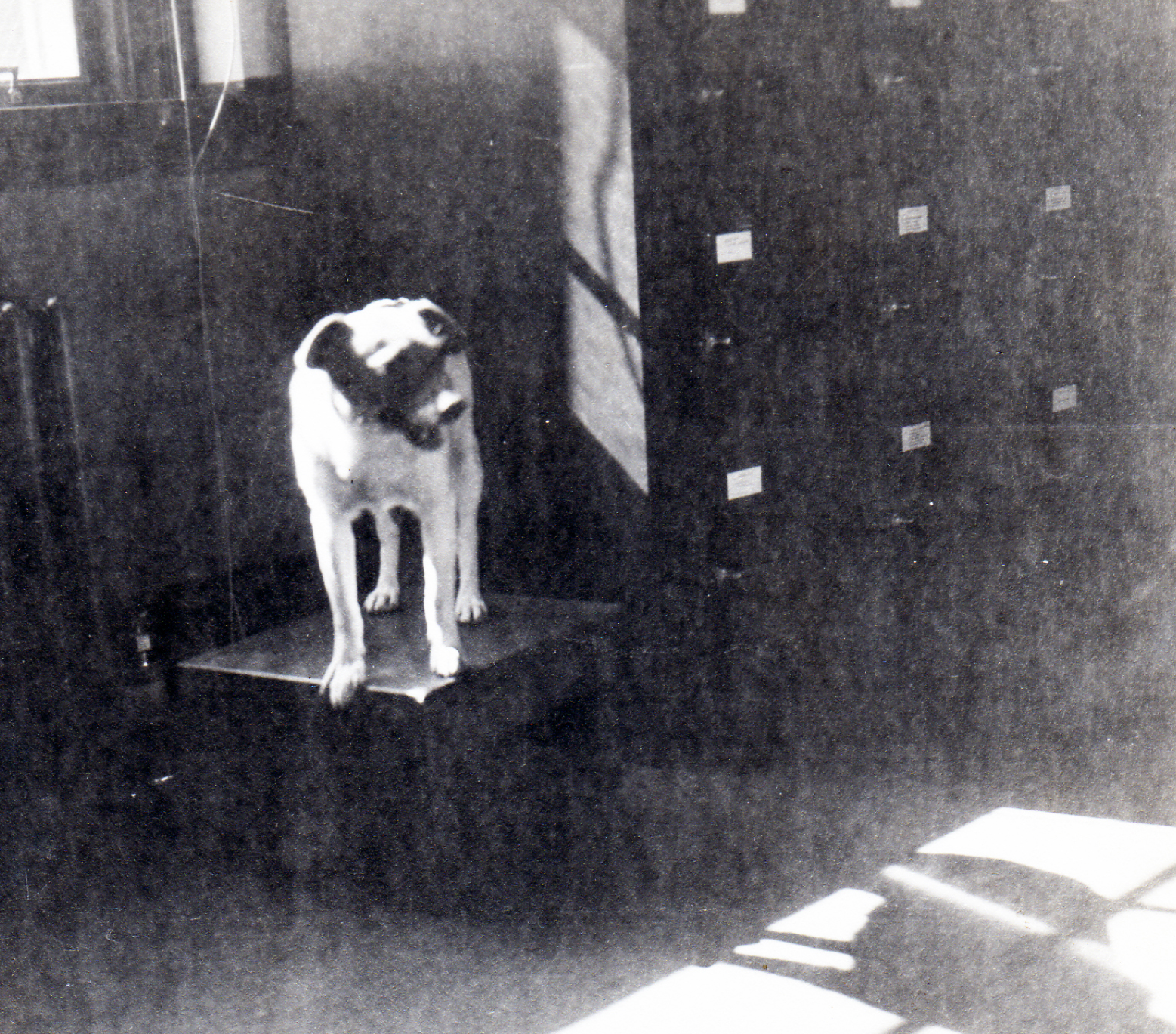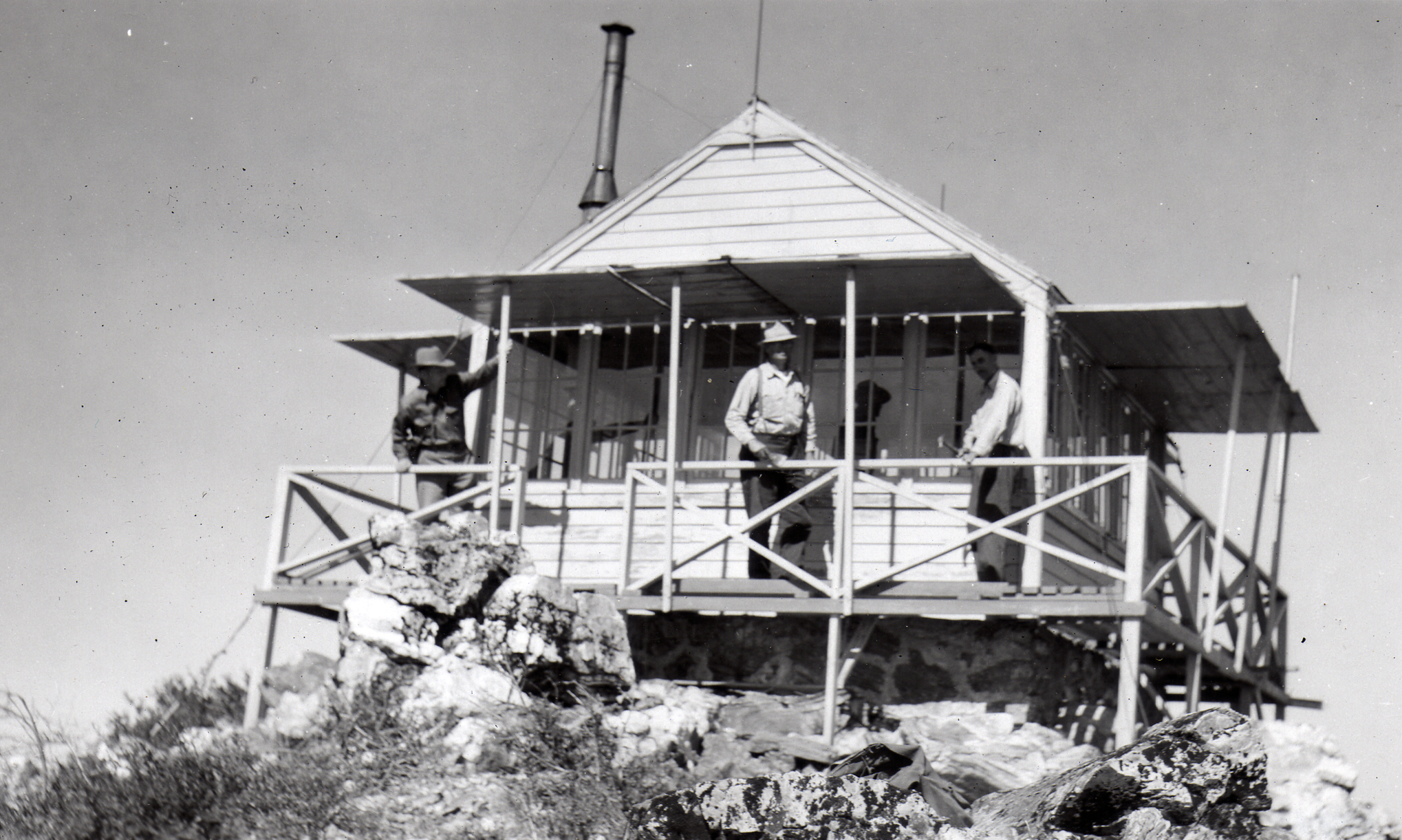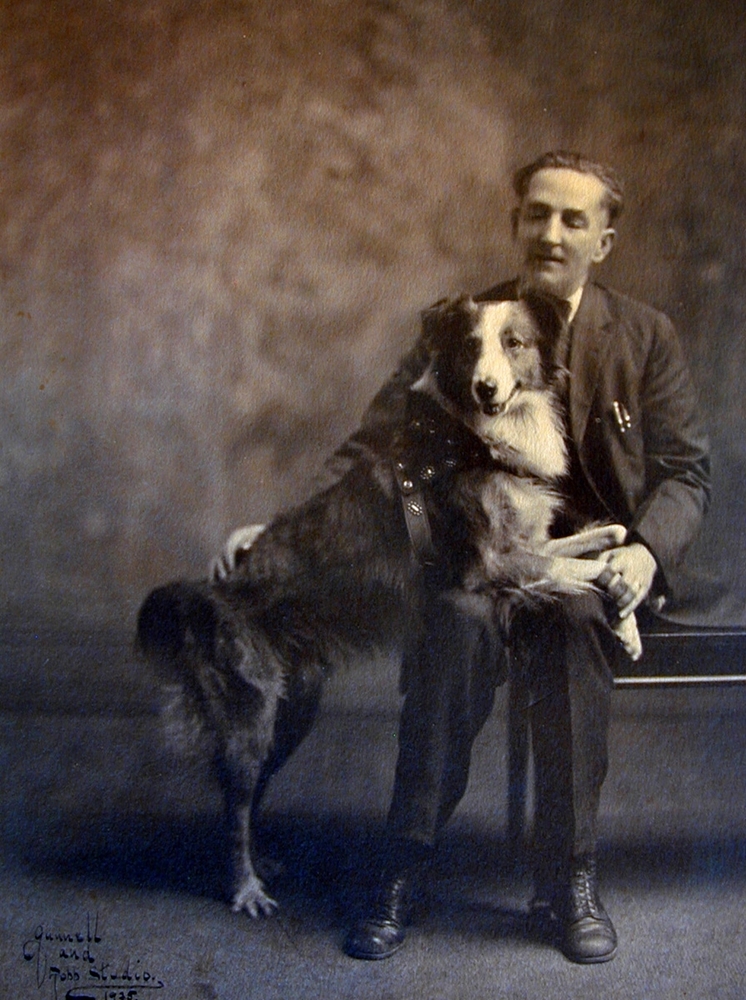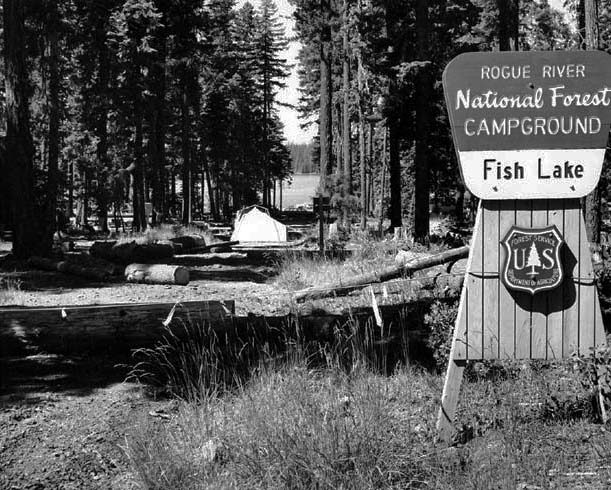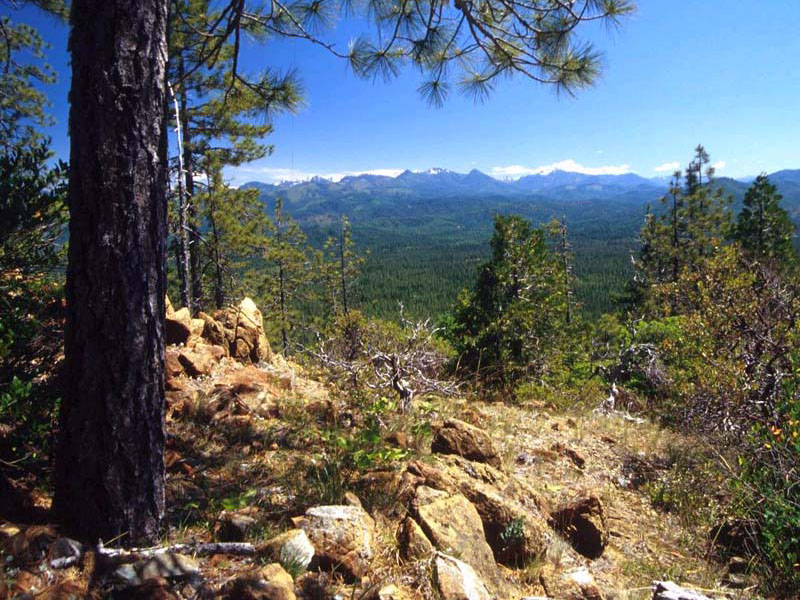A persistent fox terrier named Two-Bits earned a brief measure of national fame while spending the winter of 1942-1943 at the Siskiyou Mountains' isolated Whisky Peak Lookout. Called a "war hero" by the press, Two-Bits became the subject of front-page newspaper articles across the country, and his story was told in a children's book about famous animals.
During the early years of World War II, the Army Air Corps took over a number of U.S. Forest Service fire-lookout facilities on the Pacific Coast as part of its Aircraft Warning Service, an emergency program to have observers scan the western skies for enemy aircraft until the new technology of radar could be perfected and strategically installed. Among those lookouts was the Rogue River National Forest's 6,497-foot-high Whisky Peak.
A 14-by-14-foot lookout building perched on the summit next to a near-vertical 600-foot drop to Low Gap Creek, the lookout became winter quarters for Two-Bits's owner, Bill Zeigler, and another AWS man. Their task at Whisky Peak, which was in a rugged and remote portion of southeastern Josephine County, was to report to the army by means of crank telephone any aircraft heard or observed. Forest Service crews on skis delivered food and other supplies to the pair every two weeks. Two-Bits spent his days at Whisky Peak chasing the chipmunks that begged for food.
By February, the abundant snow on the summit had formed an icy cornice that overhung the precipice. One day, Two-Bits charged the rodents with too much vigor and slid across the ice and over the cliff. Zeigler assumed that the dog could not have survived the plunge and so was surprised to see him back at the lookout about a week later. Two-Bits, apparently having landed in a deep snowbank, had managed to crawl and limp his way up to the summit. The dog took the same plunge a few weeks later. Again Zeigler assumed the worst, but the dog soon appeared at the lookout.
When Zeigler and Two-Bits returned to Jacksonville in the summer of 1943, word of the dog's exploits came to the attention of local reporters. The Medford Mail Tribune made Two-Bits a symbol of Home Front stolidity and determination, reporting that he had survived both falls "without physical impairment or loss of morale." Two-Bits died a few years after the war.
In 2019, Rogue Valley resident Bob Haworth, a former member of the Brothers Four and the Kingston Trio, set the entire tale of Two-Bits to music. The chorus goes: “Two-Bits was a hero, a scrappy little pup. Brave and courageous, Two-Bits never gave up…. They thought he was a goner, but he came back up again – and again! Yes, ol’ Two-Bits, he showed the world that we could win.”
-
![]()
Two Bits inside Applegate Ranger Station, c.1943.
Rogue River Nat'l Forest Historic Photo Collec., V-3-34 -
![]()
Whisky Peak Lookout with Aircraft Warning Service staff, 1942.
Rogue River Nat'l Forest Historic Photo Collec., V-3-38 -
![]()
Whisky Peak Lookout with Aircraft Warning Service staff, 1942.
Rogue River Nat'l Forest Historic Photo Collec., V-3-36
Related Entries
-
Bobbie the Wonder Dog
Bobbie the Wonder Dog, of Silverton, was the canine hero in a story tha…
-
![Rogue River National Forest]()
Rogue River National Forest
For over a century, the Rogue River National Forest has filled an impor…
-
![Siskiyou Mountains in Oregon]()
Siskiyou Mountains in Oregon
Southwestern Oregon’s Siskiyou Mountains, which comprise the largest su…
Map This on the Oregon History WayFinder
The Oregon History Wayfinder is an interactive map that identifies significant places, people, and events in Oregon history.
Further Reading
LaLande, Jeffrey M. Prehistory and History of the Rogue River National Forest: A Cultural Resource Overview. Medford: USDA Forest Service, 1989.
Medford Mail Tribune, March 3, 1947.

